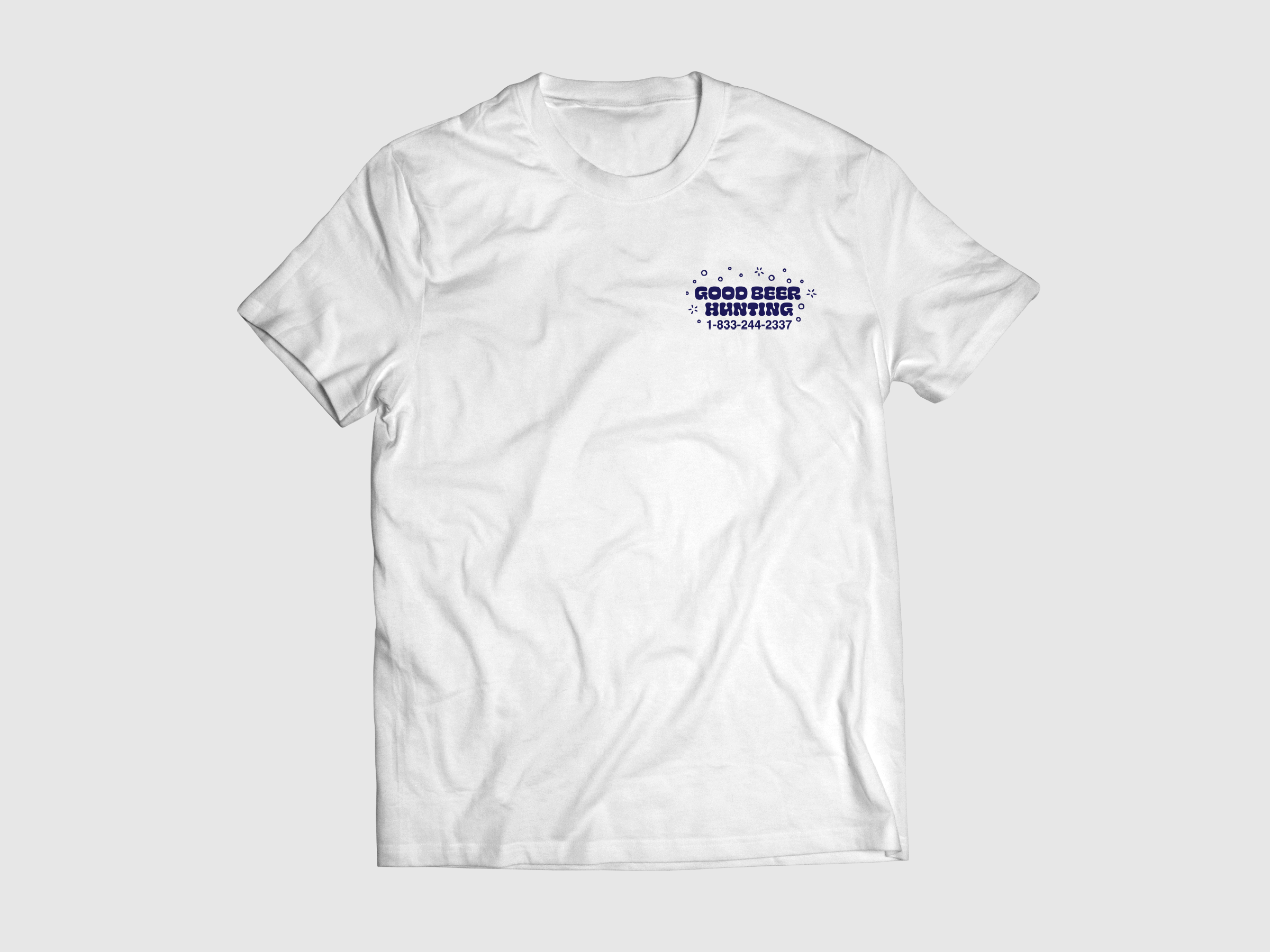Last week, GBH published the latest article in our Humanity in Hospitality series, which attempts to tackle myriad social issues in the beer industry. In the piece, Bryan Roth looked at behaviors that contribute to a lack of inclusiveness in a variety of ways. But one aspect of the article has occupied almost all of the attention in the subsequent feedback, and that was breweries whose employees were running rogue or secondary Instagram accounts. A few of these accounts featured sophomoric humor, simulated sexual imagery, and an all around boys club mentality.
Some of the breweries in question are otherwise known for having positive cultures and contributing to a progressive and welcoming atmosphere for customers of all sorts. However, even in these instances, some of that boys culture continues to seep out into their brand presence, sometimes unnoticed by leadership. And while it may be impossible for any business to curtail every possible exclusionary blind spot, off-color remark, or offensive photo within their confines, it’s odd to see some companies creating social media accounts devoted to the public expression of them.
The cumulative effects of that, as the article makes a case, can add up to many people not feeling like a brewery’s space considers them, either personally or professionally.
While a good portion of the beer internet has weighed in on the article over the last several days, we wanted to ask the Fervent Few what they think of this content. Does it affect the way they view the breweries in question?

Nate Wannlund: “This issue just points to how far the brewing industry has to go in order to truly be inclusive and open to all beer lovers. Furthermore, it highlights the inauthenticity of brands on social media. If you are being true to the image and brand you push through your social channels, you do not need a secondary account in order to share the real culture and personality of the brewery. To be honest, the more I thought about the article exposing the ‘boyz clubs,’ the more I realized that it only exposed the tip of the iceberg. Craft beer can't grow if it can't grow up.”

Robbie Wendeborn: “I've worked in breweries of different sizes and in different parts of the country and I can definitely see some truth or a mirror aspect to the ‘boyz’ accounts. This is what it's like when you work in a brewery. It's not a ‘professional setting.’ I don't think it ever has been or ever should be. We have words, technical and official nomenclature, for things that are not respectably said outside a brewery. (‘Sample cock’ comes immediately to mind.) Craft breweries are places that are full of rejects. No one at a brewery wants or deserves or can sanely work a ‘real’ job. Even the accountants and marketing people. It's almost like, ‘Duh, there are a lot of dick and fart jokes that don't make it to the official marketing material.’ There's nothing wrong with dick and fart jokes. There is something wrong, however, when the ‘jokes’ veer into misogyny, racism, and homophobia. There is something wrong when there are groups that get to make the jokes or do certain types of labor and those that don't. And there is something wrong by sanctioning or by hiding this latter type of behavior.
I've been really lucky to work at only breweries that celebrate diversity by having women and people of color at every level of production and management (shoutout to Tin Roof in Baton Rouge, LA and Ska Brewing in Durango, CO). Now, I'm a head brewer and the only employee at a small brewery in Upstate NY, and I'm making it a priority to hire and reach out to the amazing diverse people around me so that I can carry that tradition forward.”

Zack Rothman: “When I see these secondary accounts, I see an effort to hide the true character of the people behind the brand. This is especially disconcerting when it comes to craft beer, as consumers are often drawn in to a brand by wanting to meet the people behind it. What a letdown it will be when those two don’t match up. When breweries are called out on inappropriate behaviors, they often offer explanations after-the-fact on social media, detailing all the good things their brewery is doing. I believe that’s the wrong way to go about it. If your brewery is doing something good, tell consumers up front. Don’t force them to ask why you’re doing something they find inappropriate and look to you for a response.”

Zak Rotello: “At first I was a little MEH about the whole article, because the @____boyz accounts I followed all seemed to be fart or poop jokes, nothing explicitly misogynistic. But then I started thinking: as much as I love our dish crew, would I let our them start a branded Instagram account? Hell no! Your brand IS your value, especially in the online space, and if you put it in the hands of the less-than-capable or responsible, you're opening yourself up to a lot of (unnecessary) grief.”

Brad: “As someone that has had to get employees to close rogue social media accounts in a previous job, my personal opinion is that it’s pretty simple. Unless you have equity, are a brand ambassador, or a public persona, your personal brand does not get to be associated with the larger brand. Speaking on behalf of a brand is a privilege that not everyone is entitled to. And I know most startups and small companies don’t think about putting those kind of rules in place, but if they aren’t, well, then your brand voice can become whatever the heck someone else wants it to be.”

Lana Svitankova: “As a customer, I'd be saddened and disappointed after finding such accounts run even on a personal basis by brewery workers (I mean, without mentioning brand, etc., but I know the person and know their work.) Because, as a drinker and individual you get to love a brand, become loyal, and of course you want to see all representatives [be] better human beings. It's overall disappointment I'd feel. For me, it doesn't matter [if] it's an official sub-account or not. It's much worse when it is, but anyway... As a member of brewery team, I'm proud that there have never been any issues with this inclusiveness, and hope to promote it further. And being true to the declared values is the reason I joined and still work with my team.”

Shannon Vinson: “Here’s an idea, and this is loosely taken from a female co-worker: imagine you work in an industry where you’re already a minority. There’s already way less women in your work space than men. Then you find out there’s a funny, joke-y social media account that basically glorifies that fact, so much that is has ‘boys’ in the name. Intentional or not, it doesn’t feel good. In a way, this is a complicated issue. In another way, it’s not. If you’re not inclusive, you’re exclusive. Let’s be better allies (myself included)!”

Alex Marino: “If I see offensive, exclusionary behavior from a brewery, they've lost my business. There may be a small chance they were totally ignorant of the effects of their posts, and I'll always give someone a chance to explain themselves, but most likely I'll pass over their brand when I'm at the store.
But I've really struggled to come up with cohesive thoughts on diversity in beer because it just makes me so fucking mad. On one hand, fuck 'em. If you want to be shitty toward others, then you can go straight to hell. You're harming your business by showcasing a work environment that will deter top talent. You're also harming your bottom line because you're not going to get my business, and you'll be damn sure I tell my friends they should look elsewhere as well.
On the other hand, I want to try to be understanding. Lord knows I've made my fair share of unintentionally offensive statements, and it was through having friends and coworkers that were kind and patient enough to educate me that I was able to understand and modify my behavior. (This happened as recently as YESTERDAY!) I'm not in the beer industry, so I don't know how much of that is already happening. But I hope that discussions like the ones I've seen this week start to make more people feel empowered to speak out and educate others.”

Carla Jean Lauter: “Does the beer industry have a responsibility to provide a workspace that is friendly to all races, genders, etc.? I believe it does. Brewers that encourage (or turn a blind eye to) sexual and sexist banter to be a staple of their workplace environment are betraying that ideal. I hate using the ‘daughter/mother/sister’ argument, but in some cases, could you imagine a woman you know wanting to work in an environment where comments are made, memes are posted, and jokes are shared only between the guys in a company? Those backroom jokes turn into attitudes, the attitudes turn into exclusion, and that exclusion is not healthy for the business or for the industry.”

Lewis Bower: “Everyone should treat everyone with respect. The thing is, I’m not sure that we need to be the internet police and dig around for these ‘other’ social media accounts. These are businesses and need to be held to a certain standard, this is true. But could actively seeking out these accounts to ‘catch people’ be a little overkill? I’m not saying it is or it isn’t. Just think it’s worth considering. While it’s certainly not an excuse, it does make a difference that they aren’t the official accounts of these breweries. This kind of sophomoric, fratty humor is really unappealing to me. That being said, what would we think if a small or mid level musical act posted this kind of thing on their social media accounts, or included it in their music? Nobody would care. If someone was offended, they probably wouldn't listen to that music. I guess the point is that if there are instances of real people being directly affected by the behaviors of any of these breweries in a real way, then we have an issue. However, if it’s just immature, offensive guys with bad taste posting immature and offensive things online, then what are we really trying to do here?”

Andrew Skelton: “As an aspiring professional within craft beer, seeing the prevalence of these accounts and this behavior has a disconcerting affect. From personal experience outside the craft beer industry, bringing these actions to light and speaking to supervisors about them usually gets a response along the lines of, ‘I don’t believe you,’ or, ‘Lighten up, you just lack a sense of humor.’ This culture has become so ingrained in their lives that they believe it as normal and sometimes is even glorified. When you hear these responses from supervisors it brings up the question: ‘If you know you’re not going to be believed and nothing will be done about it, why even try?’
Most consumers as well are willing to turn a blind eye to these practices as long as the product that is produced is to their standards. This willful blindness is something I will admit to having done and I am personally unsure of how I will act as a consumer going forward.”

Nick Yoder: “These accounts are problematic for a variety of reasons.There is, of course, the exclusionary aspect covered in the article, and the worst offenders certainly open up the brewery for all manner of hostile work environment liability.
From a marketing standpoint, these accounts make no sense, because they dilute the brand. I understand having an official account that focuses more on providing information for customers and then creating a separate account that focuses more on behind the scenes, as that allows people to choose what they want to see. But when these two accounts have almost nothing in common besides the associated business, there's a major branding issue. And when the message one of the accounts is conveying is as problematic as this, it's downright toxic for the brand.”

Stefan Wiswedel: “Personally, I would feel uncomfortable being part of an organization that has an account like this. It's not something I agree with and if it's ingrained enough in the culture of the organization that they have specific social accounts providing an avenue for this content, I don't think that would be a place that I would want to work. The day after I read this article, I had a horrible experience. One of the staff at the brewery where I produce my products said something horribly racist. It was said in jest but it made me deeply uncomfortable and made me think a lot about this article. If these were ‘white clubs’ being derogatory towards people of colour instead of ‘boys clubs’ being derogatory towards women, would it have been perceived differently?”

Michael Kiser: “Having only known about a couple of these accounts prior to Bryan’s research, I first saw it as simply sloppy and probably innocent—especially from the breweries I think know better, like Half Acre and Kent Falls. Their general cultures are nowhere near the tone we found in others. But when I was presented with an entire ecosystem of interconnected accounts, all celebrating the maleness of their environments, I started to see it for what it is—a complete blind spot to how easily exclusion can be projected from a workplace, even one that’s generally thought of as healthy. That’s when my attention shifted away from the content creators and toward the people who might be viewing these, and many more like them, even without the ‘boyz’ moniker.
Many of these breweries have a good number of women working there already. Some, like 2nd Shift and Perennial, are co-owned by women. And yet this kind of image was being portrayed anyway. Kudos to the women who venture to work in a male-dominated industry and succeed despite these kinds of blind spots, but how many more women are never even attempting to fill out a resumé for those breweries, or beer in general? How many people of color are waiting on the sidelines looking for a signal that these are places for them, too? Some of them would no doubt be welcoming, but they shoot themselves in the foot when they project, and even celebrate, the white male dominance of their work environments. And as a business owner in the field, it makes it harder for us to signal, too. These impressions, when they become this systemic, hold the entire industry back by discouraging others from ever trying to join in.”

Kristen Foster: “The most egregious accounts with outright racist, homophobic, and sexist content are indefensibly inappropriate, especially for a workplace. But the others, the ones with more subtle innuendo, I do believe they hurt the industry and act as a deterrent to improving diversity within the population of beer industry employees and beer consumers. Since the article was published, the majority of responses from the fans, breweries, and owners has been to debate the intent of these accounts, when the article focused on the impact. If an account warrants explaining, the owner (of the account and/or associated brewery) has to step back and consider the effect—regardless of their intent, and regardless of the other good things they may be doing to promote diversity. You can get it right most of the time, and still have content associated with your brand that's deterring from your overall message.”

Dave Riddile: “As someone who handles marketing for a brewery, I find these type of accounts inexcusable. It has taken me so long to respond because I have been attempting to wrap my head around why these would exist as a representation of a brand. I can't really see any other side that makes this ok. Your brand is something that needs to be fiercely protected and to then damage it from the inside out with one of these idiotic accounts is insane. No matter if it was there for a short time and quickly abandoned or updated every day, both are irresponsible and damaging to your company, its perceived culture, and the craft beer community at large.
We can't possibly be better as an industry if this mentality persists. It is a turn off to the very people we hope to reach, and a turn off to me as an industry member, to see colleagues promote this sort of culture. Beer is for everyone to enjoy, regardless of color, gender, sexual orientation, etc., and there is no one within the industry that has a right to say different.”

John: “Although I do not work in the beer industry, I found Bryan's article to be insightful and thought-provoking. I think his article highlights a problem that is so much larger and more complex than what it might initially appear to be. Sexism, racism, homophobia, etc. are all systemic and cultural problems that touch and affect every aspect of life. The problem with these accounts is that they represent a work and societal culture where those in the minority are always on the outside looking in. It's probable that the people behind these accounts are not malicious nor are they attempting to intentionally exclude anyone. However, it does send a message that if you are a woman or a minority, and want to be a part of this community, then it's you who have to adjust and adapt to this kind of culture, even if it makes you uncomfortable or hesitant. One of the things about the craft beer movement that so many of us admire is that these breweries are more community-focused, and the people behind them care about more than simply making money. If that's true, then craft breweries should remember that being part of the community includes everyone, not just a specific, traditional demographic group. Craft breweries have been ahead of the curve in many ways over the last decade or so, and I hope that, as our society becomes more socially aware, these same breweries don't forget this lesson on issues of such value and importance.

Caldwell Bishop: “The article and the discussion that has been going on here is my first exposure to these secondary accounts and this side of the beer industry, beyond misguided and inappropriate labels/branding.
I've always been able to observe that the beer industry is overwhelmingly white and male, but I've also bought into the notion that people in the industry want to be more inclusive and mature, and that community is an important concept. It wasn't entirely surprising that some breweries have secondary accounts like those mentioned in the article, nor is it surprising that there are social media accounts about beer and boobs/butts/sex.
But it is really disheartening, disappointing, and off-putting to see that some of the breweries mentioned appear to be fairly dismissive of the problems with these accounts. Things like, 'If anything, it's the interesting side of things. It's a way of showing this is just beer and we're here to have fun.' I feel like if you can't find something interesting or fun beyond being a fuckboy, sexist, and racist in your line of work, especially if you get to make or sell beer for a living, then you're probably in the wrong industry.
I go back and forth on whether or not I want to work at a brewery in some capacity one day. Things like these accounts and this kind of culture really put me off from it, though. If nothing else, it's a reminder for me that, like many other industries, company culture can vary greatly from place to place, and it's important to recognize that and be selective about where you support and where you choose to work.
Thankfully, there are places like GBH. The folks here present a different side to the beer industry.”

John Leger: “I don't think these guys sought out to exclude anybody, however, they were very shortsighted and tone deaf in setting up these public accounts and with their posts. I don't think they made accounts with variations of 'boi'/'boyz' to say this is a club that others cannot be a part of, but that they began as natural friendships amongst the beer production staff (in my experience, non-retail staff are predominantly white males). They were the boys of the brewery and they were tight-knit—they also enjoyed communicating with similar teams at other breweries. They made juvenile and, in some cases, very distasteful/disgusting 'jokes' that have no place in the workplace. (I can't say I know the extent beyond the few examples here.) There should never have been any confusion as to whether or not these accounts were affiliated with their respective companies, but I think they did it to make it obvious to other brewery staffs that might look to follow. Not apologizing, but rationalizing. They should definitely be taken down, and the breweries need to learn from the situation. No need to be shamed to death, but I do hope this article shed light on the problem and put craft beer on a better path. Cheers to anybody who wants to drink, make, or sell good beer!”

There’s a lot more to come from a variety of voices in the industry on these topics. Join the Fervent Few, share your perspective, and become part of the community voice GBH publishes each week. We’d love to have you here.










